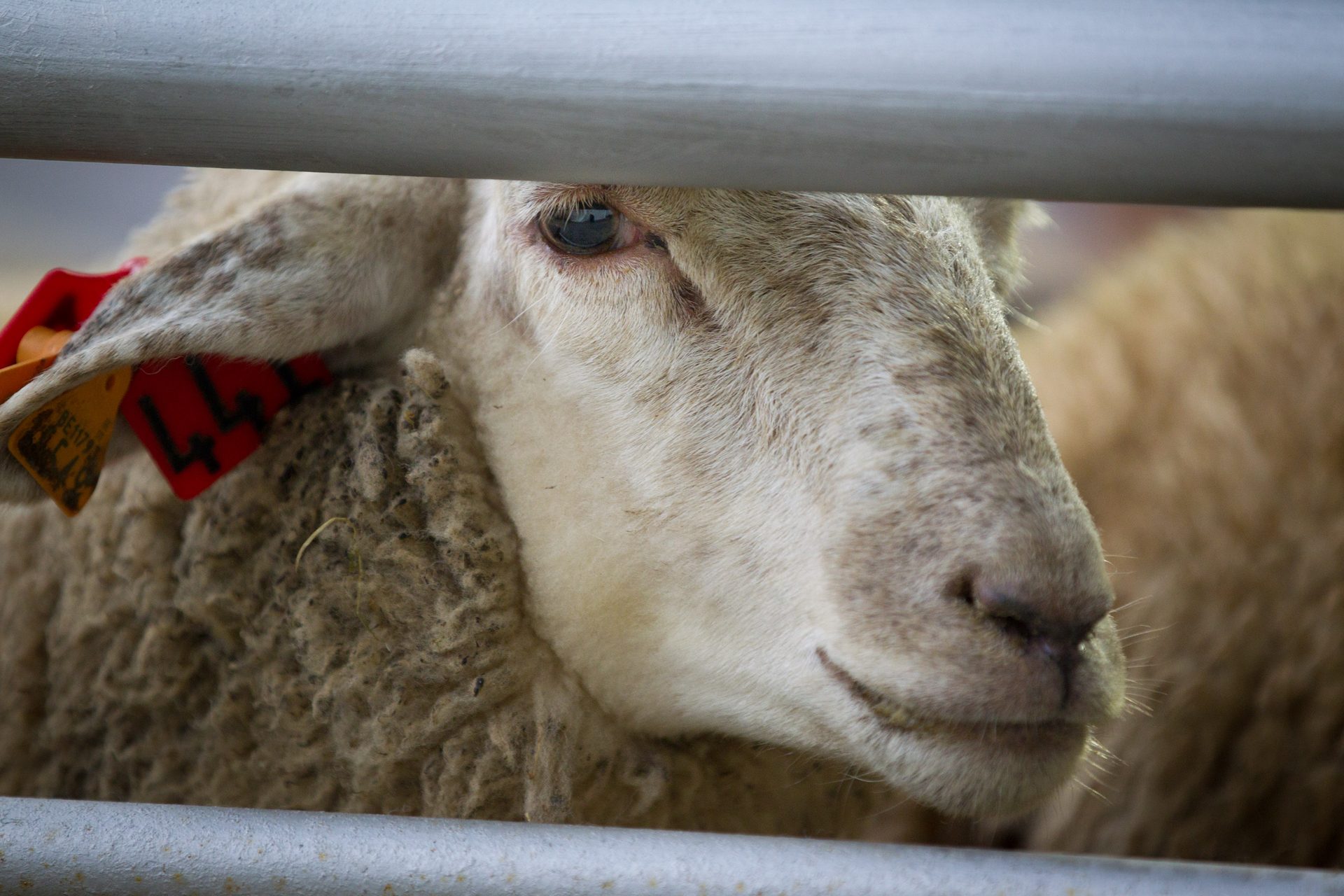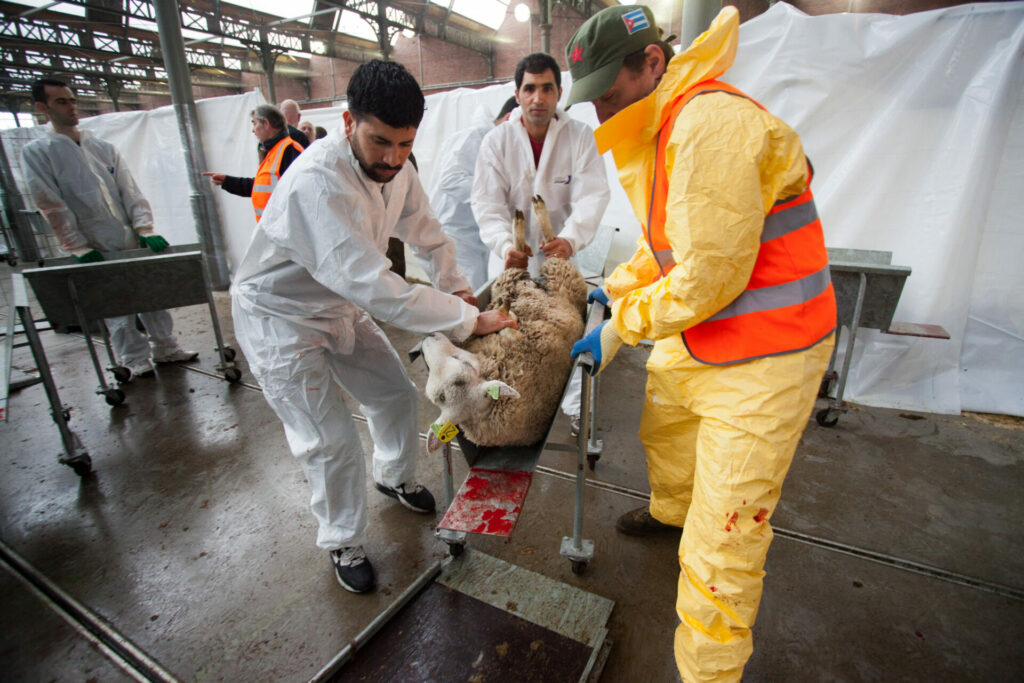The European Court of Human Rights (ECHR) has rejected claims made by several groups in the Jewish and Muslim communities that the ban on the unstunned slaughter of animals breaches religious freedoms.
The court in Strasbourg on Tuesday delivered its long-awaited ruling on the Flemish and Walloon ban on unanaesthetised slaughter of sheep and cattle to produce halal or kosher meat. It came into force in 2019 following 25 years of campaigning by the Belgian animal welfare organisation GAIA.
The ban has been previously challenged by the two religious communities on the grounds several times. They argued that it would be hard, if not impossible, for Jewish and Muslim believers to slaughter animals by the precepts of their religion or to obtain meat from such animals.
In a previous case, Belgium's Constitutional Court decided in September 2021 not to annul the Flemish and Walloon decrees. A total of 20 Jewish and Muslim personalities and organisations in Belgium, including the Chief Rabbi of Brussels and the Muslim Executive, then took the matter to the ECHR.
But now, it too has rejected the claims, stating that the ban on the unanaesthetised slaughter of animals as part of religious rituals does not interfere with freedom of religion, protected under Article 9 of the European Convention on Human Rights.
'Proportionate measures'
This marks the first time the court, which watches over the application of the Convention, ruled on the relationship between animal welfare and religious freedom.
"In adopting the decrees at issue, which had the effect of prohibiting the slaughter of animals without prior stunning in the Flemish and Walloon Regions, while providing for reversible stunning for ritual slaughter, the national authorities did not exceed the margin of appreciation available to them," the Court noted.
The ECHR added that the measure appeared to be "justified in principle" and "proportionate" in relation to the objective of protecting animal welfare.
The court also rejected claims that they had been discriminated against regarding their freedom of religion (Article 14, prohibition of discrimination).

Credit: Belga/ Julien Warnand
Brussels is the only Belgian region where the ban is not in place. An ordinance proposal to ban unanaesthetised slaughter failed to find the required majority in the regional parliament in June 2022.
GAIA's chair Michel Vandenbosch said the organisation will now continue to fight in the Brussels Region as he argued it no longer has any serious reason not to introduce a ban.
Flemish animal welfare minister Ben Weyts (N-VA) also stressed that the court's ruling means that "the door is now open for a ban on unanaesthetised slaughter not only in Brussels but all over Europe".
"We are now reaching out to the religious communities that challenged the ban. Let us now definitively turn this page and fight together for more animal welfare from now on," he wrote on social media.
Related News
- Ban castration of piglets without anaesthetic, animal rights group says
- Christmas without foie gras? Flanders becomes force-feeding-free
- Wallonia moves closer towards authorising on-farm slaughter
But a collaboration remains unlikely. In the past, members of the Jewish and Muslim communities have argued that stunning is not always painless, adding that it causes suffering to the nine billion animals that are slaughtered every year in Europe.
Furthermore, they also criticised the fact that wild meat from hunting, which the court allowed for "cultural" reasons, is also sold on the meat food market.

